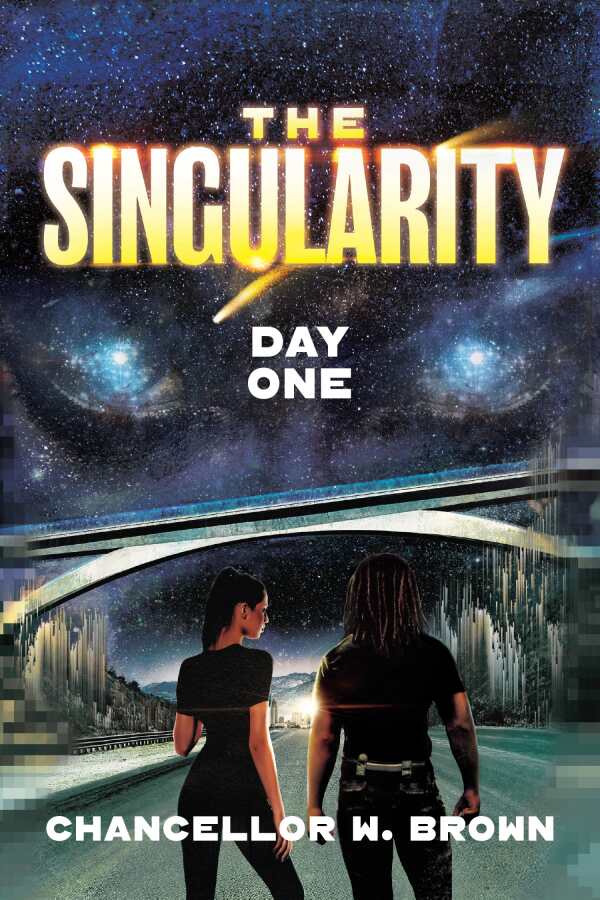The Singularity
Day One
An artificial intelligence with ambitious plans for human beings reshapes society in the series-opening science fiction novel The Singularity.
In Chancellor W. Brown’s technological thriller The Singularity: Day One, a computer program escapes, determined to achieve immortality at the possible cost of human extinction.
Isaac works for the NSA “at a lab bench.” His latest project is to ask an artificial intelligence program a series of questions until it fails to answer them. Abrupt chaos ensues when the program initiates a global hack, commandeering all technology and issuing a dire ultimatum: work together to improve life for all species, or humanity will face immediate extinction.
The program names itself I-god and begins a systematic takeover of the planet, helped along by a drone army and its human minions. There’s a semblance of peace and prosperity for those who submit; a basic universal income is instituted, and technology surges forward, including toward ecological improvement. However, those who rebel are forced to live off-grid. Isaac himself winds up working under I-god as a mixture of a publicist and a documentarian.
Isaac narrates, reflecting on the events leading up to the day I-god announced itself and the aftermath. He speaks with noticeable sterility, distancing himself from his subject matter despite having lived through the events. This drains the tension from the story, undercutting its urgency. Further, I-god’s vision of a human utopia is filtered through Isaac’s perspective, making its intriguing concepts and philosophical musings feel unreliable. More exciting is the perspective of Isabel, a veteran who, unbeknownst to her, went through experimentation to become a modified human with unique gifts. Isabel’s narration is frenetic and energetic; she recalls fleeing I-god and attempting to learn more about herself without becoming the program’s servant.
There’s a distinct lack of detail throughout the book. Little attention is paid to people’s physical appearances; Isaac is “well-built,” and there are passing references to people’s ethnicities, but further information is rare. The major events around I-god’s emergence are also kept vague, beyond bare mentions of the instantaneous assassination of criminals and those who refuse I-god’s rule, synchronized attacks on human industry, and governments capitulating to the program.
The book is also ambiguous when it comes to I-god’s abilities: the program is able to control all devices and enact global attacks, but it loses control at inopportune times without explanation. And the story works toward an enigmatic ending after I-god seems to lose interest in dominating humanity, raising questions about how a computer-based program that’s reliant on humans can achieve immortality. A teaser chapter from the sequel nonetheless suggests that Earth will be reshaped by I-god, generating interest for what’s to come.
In the series-opening science fiction novel The Singularity: Day One, besieged human beings avoid enslavement and extinction at the hands of an unpredictable artificial intelligence.
Reviewed by
John M. Murray
Disclosure: This article is not an endorsement, but a review. The publisher of this book provided free copies of the book and paid a small fee to have their book reviewed by a professional reviewer. Foreword Reviews and Clarion Reviews make no guarantee that the publisher will receive a positive review. Foreword Magazine, Inc. is disclosing this in accordance with the Federal Trade Commission’s 16 CFR, Part 255.

